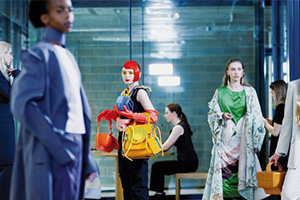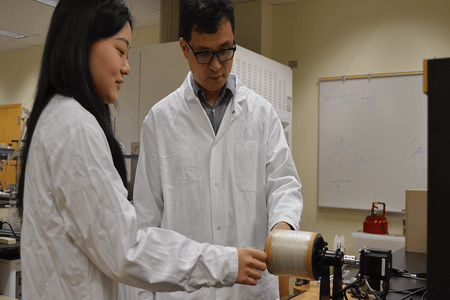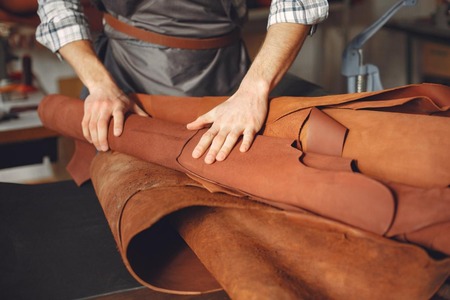
London students present sustainable designs
YarnsandFibers News Bureau 2019-06-11 14:20:00 – United KingdomClothes grown from slime mold and tupperware handbags were among the environmentally-friendly designs and ideas presented by fashion graduates at a London arts school on Friday.
The Royal College of Art is holding its annual fashion show, in which students in women swear, menswear, knitwear, footwear, accessories and millinery unveil their creations.
This year, the “All At Once†show looks at the fashion industry’s impact on the environment at a time when many designer houses are seeking to improve their green credentials to appeal to increasingly environmentally conscious consumers.
“Fashion and sustainability have to now be one. You have to be thinking in different ways,†student Andrew Bell told Reuters at a preview.
“Fashion has been doing the same thing for so long, we’ve created the same black top and the same black jeans and we’re constantly calling them new...there’a actually nothing new about these items.â€
Bell uses ultrasonic welding to make clothes that fold completely flat, like coats with non-fray linings. His garments are “mono-materialâ€, meaning they can be recycled more easily.
That is something Margot Vaaderpass is also looking at when making tops, coats, trousers and skirts using pineapple leather, biodegradable buttons and knitted tailoring.
“That’s one of things that I have taken up as a challenge - how can we create a suit that’s knitted,†Vaaderpass said. “The advantage of that is that we can shape the garment, that means that we can produce less waste.â€
Piero D’Angelo hopes fashionistas can one day grow their own garments with slime mold. The living organism is applied on pre-designed patterns, and can grow up to one centimeter (0.39 inch) per hour.
“We designed a 3D printed prototype ... Once we apply the slime mould it will just grow, spread all over, connecting each of those holes,†he said.
“I am fascinated by the idea of growing garments and working with different materials, like living materials but also pushing further the idea of fashion.â€
Clara Chu has turned her attention to kitchenware as accessories. One of her handbags is made from ice cube trays, while another has a water-bottle lock as a clasp.
“Each handbag consists of recognizable everyday mundane objects that we find in the house, in the kitchen,†Chu said. “People don’t necessarily associate these kind of items with fashion.â€
At a time of growing public awareness of waste and its impact on the planet, Anna Sophie Goschin is studying digital design and 3D manufacturing, which she says could have “huge potential†in making fashion more sustainable.
“We make a lot of garments with a categorized sizing system,†she said. “But with planning and designing digitally, we can simulate the garment before production in the 3D manner, working directly with the shape of the body.â€
Courtesy: Egypt Today
Market Intelligence
Ask for free sample Report

experience
Customer Base
dedicated team
Countries Served Worldwide









